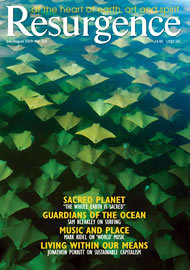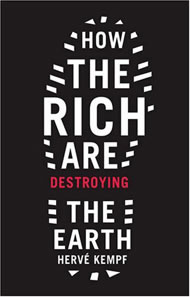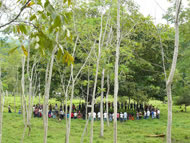THE CONCRETE WALL is massive: nine metres high. Building it destroyed hundreds of houses, tore families apart, led cities and villages to sink into poverty and now prevents farmers from reaching their land. How can walls ever be overcome: not just this one in Israel/Palestine, but the invisible ones – walls of animosity, fear and ignorance? Sabine Lichtenfels’ answer is by grace. Grace is the power which is able to overcome barriers, for it is based in the heart of all human beings.
Lichtenfels is a theologian who has been developing models for peace and education for more than twenty-five years. She is co-founder of the peace research centre Tamera and the Grace foundation and has led three pilgrimages through the Middle East and Colombia, where she gathers people who want to take part in an experiment: that thirty people can change the world.
It is early morning in the Palestinian village of Baqqa, and some farmers are waiting to reach their fields. Young Israeli soldiers let them wait. Armed with machine guns, they represent the power of occupation, every day. But today something is different. Eighty people – Israelis, Americans, Germans, Italians and others – are sitting in front of the wall, painting, making music, reading a prayer: “May all walls come down. May separation and war end.” There is no accusation, but a strong will for peace from an international presence.
In situations like these you feel what Lichtenfels calls the “power of Grace”. In spite of all the atrocities, pain and injustice she has faced, she never becomes judging, desperate or hopeless. She sees the human being behind the uniform, the common vision behind the conflict, the potential friend behind the mask of the enemy. “Grace says, I am willing to end the war and to understand the means by which it can be ended and I place myself in the service of a solution.”
It was in 2005, when a war against Iran seemed to be close, that Lichtenfels began to question what an individual could do to prevent war. The question was the start of an adventure of peace and self-empowerment. She left behind all her belongings, took only a little backpack and started to walk, alone, without money. She slept where people invited her – or outside. She ate what they gave her – or lived on just water.
In this book she takes the reader with her during her long, lonely walks through Germany, Switzerland, Italy and Greece, in strange, challenging and sometimes funny encounters. In Europe, there is no war. As a pilgrim, however, she bears witness to inner areas of crisis: “On my pilgrimage through Europe, all along, I met with gender conflict. Wherever I went I came across divorces, broken partnerships. Some people were even unable to speak to each other, so deep were their injuries. They are all looking for a solution on a level where solutions cannot be found. And all believe that one or the other of them is guilty.”
Lichtenfels is a “worker on both fronts; working at overcoming the outer wall of war as well as overcoming the inner walls of fear and anger.” For a long time she has known that this traumatic point between the genders which all of us share has to be healed.
Reaching Israel, she leads a group of fifty people on a peace pilgrimage through the West Bank. Through the eyes and heart of a mature woman, experienced in many human situations, the reader discovers a Middle East that has not been reported in the media. We see refugee camps and Israeli settlements, cities behind walls; soldiers and street kids; we listen to fearful mothers and fanatic religious people of many kinds. Yet Lichtenfels still has open eyes for the holy in the Holy Land: children, hope, connection to the Earth. “Again and again I imagine that the person sitting in front of me could just as well be me. I could be a settler, a Palestinian farmer or a young Israeli woman about to enter the military.”
We have to be the change we want to see in the world. This is her conclusion. “I believe more deeply than ever before that just thirty people can change the world: thirty people who are fully committed to renew their internal course can prevent wars. [...] Human beings who have learnt to love and who are not afraid of the truth will no longer participate in war. More than this, they will be able to demonstrate how one is able to live without war. This is my credo.”
The book is not only a report about a peace pilgrimage. It is also a textbook about how to overcome separation, internal wars and the myth of powerlessness. It is a textbook about the effectiveness of Grace. •
Leila Dregger is a writer, journalist and teacher of peace journalism in Germany and Portugal.









